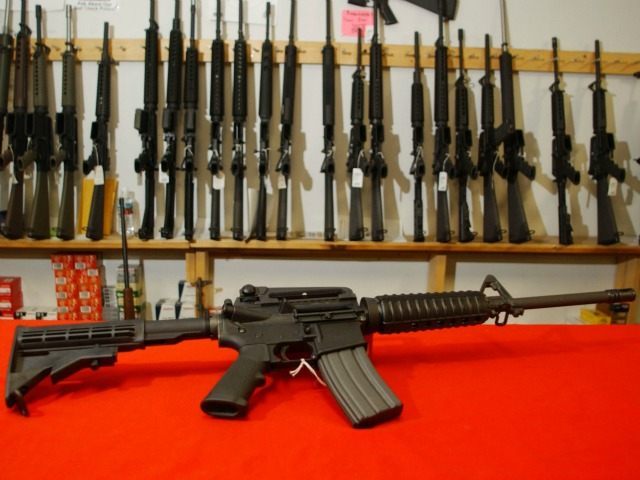The U.S. Supreme Court declined Monday to review an important Second Amendment case from Connecticut over so-called “assault weapons,” teeing up a 2017 showdown over gun rights once a new president adds a ninth justice to the Court.
On April 4, 2013, Connecticut passed a law banning various types of semiautomatic firearms, labeling them with the misleading term “assault weapons.” (There is no type of firearm called an “assault weapon,” and it is different from an assault rifle.) It banned common firearms if they contained certain cosmetic features that have no relationship to the lethal force of the weapon, such as whether the gun has a folding stock for the shoulder, or a pistol grip for the owner’s hand.
A group of gun owners sued in Shew v. Malloy, represented by two of the top Second Amendment lawyers in the country: David Thompson (managing partner of the famous Charles Cooper’s law firm, Cooper & Kirk), and Dr. Stephen Halbrook, who won the landmark 1997 Tenth Amendment Supreme Court case striking down part of Bill Clinton’s Brady Law, Printz v. U.S.
In 2015, the U.S. Court of Appeals for the Second Circuit affirmed the trial court in this case, holding that Connecticut’s “assault weapons” ban did not violate the Second Amendment right to keep and bear arms. Thompson and Halbrook then filed a petition for a writ of certiorari (a “cert petition”) with the U.S. Supreme Court, asking the justices to review the case.
Thompson and Halbrook did an excellent job of explaining how a three-way “circuit split” has developed among the federal courts of appeals with jurisdiction over different parts of the country regarding what type of judicial scrutiny courts apply when examining gun control laws. The split is over whether courts apply what the law calls “strict scrutiny,” “intermediate scrutiny,” or consult history to determine whether a challenged gun restriction violates the Second Amendment.
In their cert petition for Shew, Thompson and Halbrook argued that “the Second Circuit’s application of intermediate scrutiny was utterly irreconcilable with very decisions of [the Supreme] Court it purported to be following.”
Though the Supreme Court grants only about 80 petitions out of over 7,000 filed each year, many gun-rights leaders hoped the justices would take the case. Instead, the current Court—which is down one Second Amendment-friendly vote after the death of Justice Antonin Scalia—denied the petition.
As Breitbart News reported earlier this month, this increases the odds that one of two federal appeals—one decided recently by the San Francisco-based Ninth Circuit (Peruta v. County of San Diego), and the other awaiting a final decision from the Cincinnati-based Sixth Circuit (Tyler v. Hillsdale County Sheriff’s Department)—will be reviewed by the U.S. Supreme Court in 2017.
If Hillary Clinton defeats Donald Trump for the White House and fills the Supreme Court seat left vacant by Scalia’s death, it is almost certain that the Court will hold that the Second Amendment does not apply to private citizens at all, overruling its famous 2008 case, D.C. v. Heller.
Ken Klukowski is legal editor for Breitbart News. Follow him on Twitter @kenklukowski.

COMMENTS
Please let us know if you're having issues with commenting.